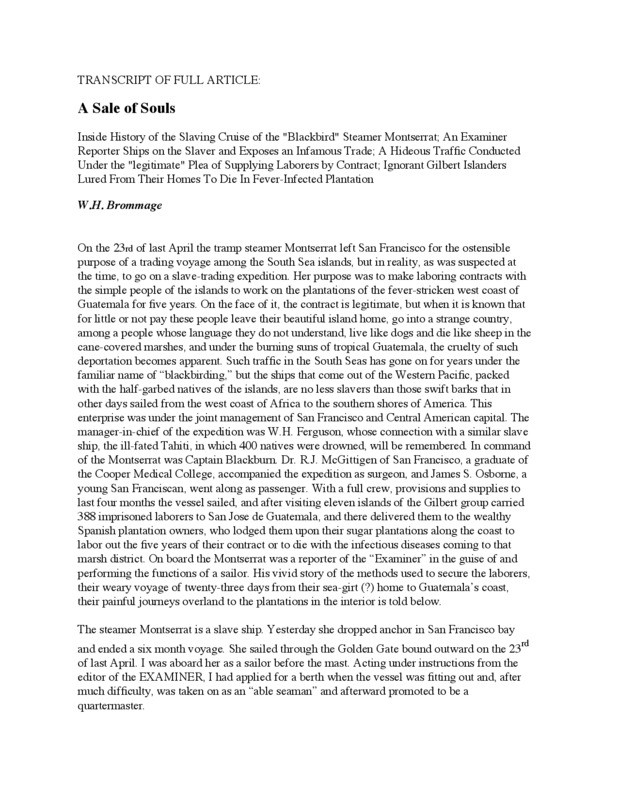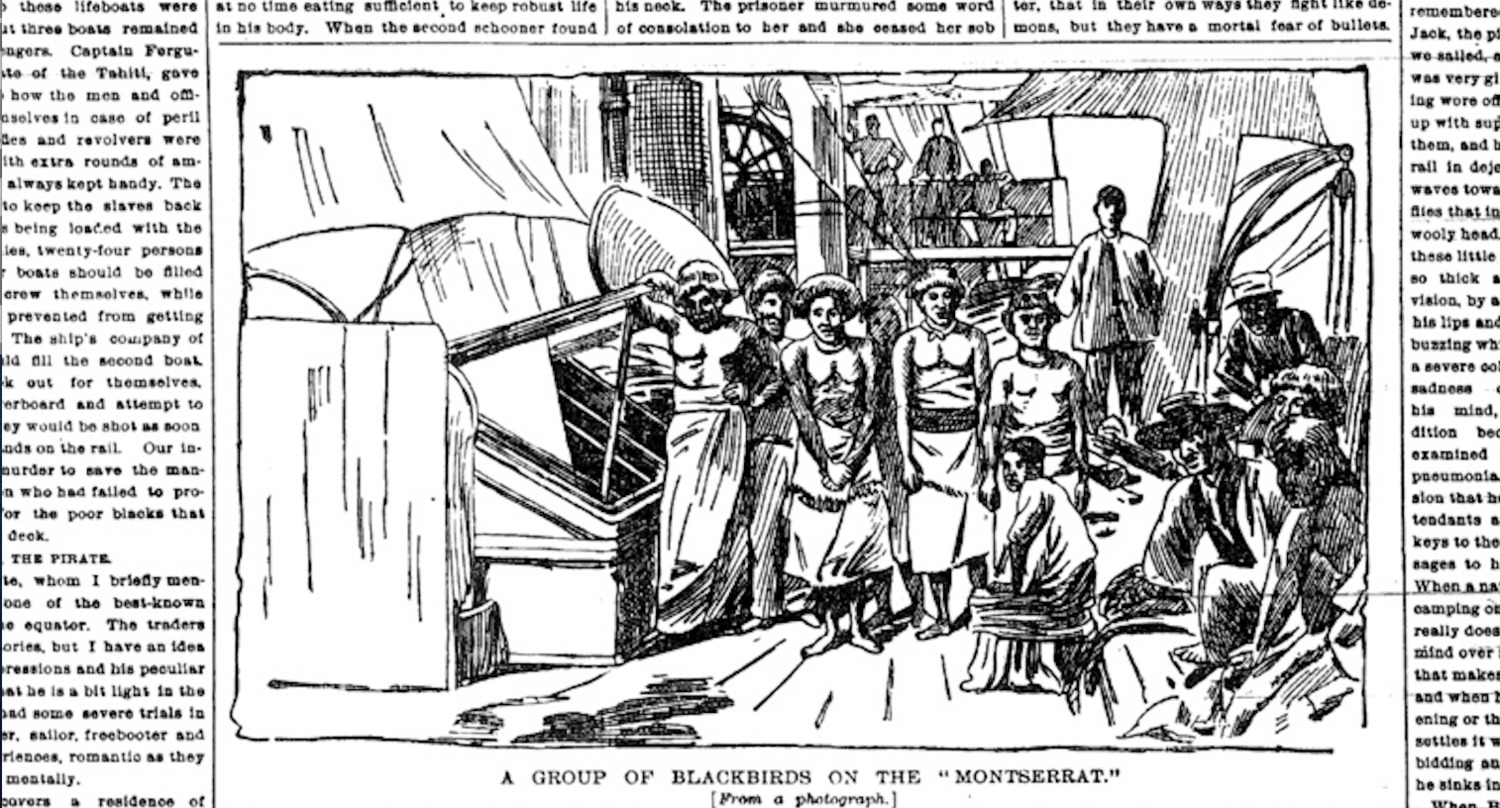Byline: W. H. Brommage; 1892-10-15; pages 1
Report: "A Sale of Souls" - W.H. Brommage - San Francisco Examiner (Blackbirding)
Tags: blackbirding, labor, ships, slavery, worked as
". . .On the 23rd of last April the tramp steamer Montserrat left San Francisco for the ostensible purpose of a trading voyage among the South Sea islands, but in reality, as was suspected at the time, to go on a slave-trading expedition. Her purpose was to make laboring contracts with the simple people of the islands to work on the plantations of the fever-stricken west coast of Guatemala for five years. On the face of it, the contract is legitimate, but when it is known that for little or not pay these people leave their beautiful island home, go into a strange country, among a people whose language they do not understand, live like dogs and die like sheep in the cane-covered marshes, and under the burning suns of tropical Guatemala, the cruelty of such deportation becomes apparent. Such traffic in the South Seas has gone on for years under the familiar name of “blackbirding,” but the ships that come out of the Western Pacific, packed with the half-garbed natives of the islands, are no less slavers than those swift barks that in other days sailed from the west coast of Africa to the southern shores of America. This enterprise was under the joint management of San Francisco and Central American capital. The manager-in-chief of the expedition was W.H. Ferguson, whose connection with a similar slave ship, the ill-fated Tahiti, in which 400 natives were drowned, will be remembered. In command of the Montserrat was Captain Blackburn. Dr. R.J. McGittigen of San Francisco, a graduate of the Cooper Medical College, accompanied the expedition as surgeon, and James S. Osborne, a young San Franciscan, went along as passenger. With a full crew, provisions and supplies to last four months the vessel sailed, and after visiting eleven islands of the Gilbert group carried 388 imprisoned laborers to San Jose de Guatemala, and there delivered them to the wealthy Spanish plantation owners, who lodged them upon their sugar plantations along the coast to labor out the five years of their contract or to die with the infectious diseases coming to that marsh district. On board the Montserrat was a reporter of the “Examiner” in the guise of and performing the functions of a sailor. His vivid story of the methods used to secure the laborers, their weary voyage of twenty-three days from their sea-girt (?) home to Guatemala’s coast, their painful journeys overland to the plantations in the interior is told below. . ."
Description:The first part of Brommage's two-part expose of the California blackbirding industry.
Rights: Public domain.


